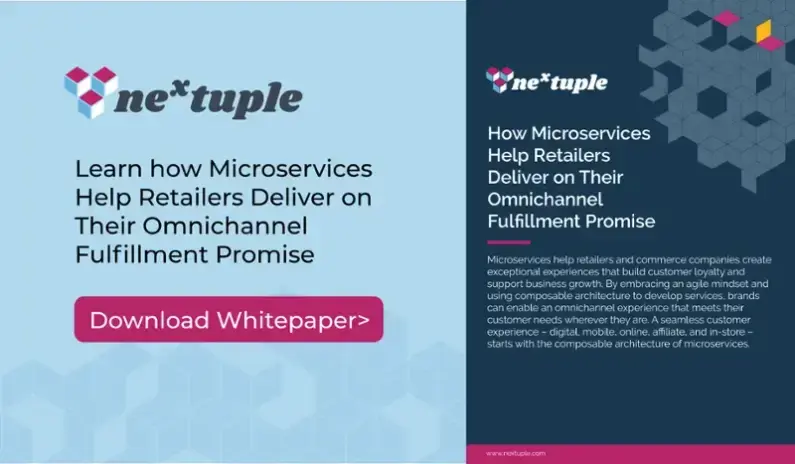According to a study commissioned by UPS, more than 24 percent of online shoppers reported abandoning their shopping carts because an estimated delivery date was not provided. Imagine losing a quarter of your sales just because you can’t tell the customer when they might receive the product.
Relatedly, 69 percent of frequent online buyers in another survey rated an easy website experience – with 55 percent specifically citing website loading speed – as one of the most important factors in making an online purchase; and 78 percent rated fast product delivery a priority.
Clearly, consumers are in control. Fulfillment trends were already moving in this direction before the pandemic. Now, with so many shoppers accustomed to shopping online and a myriad of fulfillment options – same-day delivery; store pickup vs. shipping; locker pickup; and more – they expect to instantly see their choices for the fastest delivery alongside the list of available products for purchase. In fact, in many cases, the fulfillment options available to them will inform which product they buy or even if they make a purchase at all.
Managing Complexity to Meet Customer Expectations
Mature omnichannel retailers with large store counts must manage a high degree of complexity to effectively promise EDD (estimated delivery date) alongside product availability. They must have visibility into – and be able to manage the execution of – a significant number of stores, carriers, distribution centers, and SKUs. Yet, it is precisely those larger national retailers that are expected to offer that level of detail and service when customers shop with them.
Variables like availability, holidays, available delivery days, distance from shipping origin, and processing time cutoffs all contribute to the complexity of calculating delivery dates. And, according to a Deloitte study, consumers shopping online require immediate, accurate information about stock levels, delivery times, and shipping. Nearly half of those surveyed reported looking elsewhere for a product if the seller they were browsing could not provide robust order tracking and transparency around the delivery date.
Delivering a Best-in-Class Customer Experience
When mature retailers have to balance the complexity of promising – significant numbers of stores, multiple carriers and distribution centers, and a large inventory of items – with consumers' expectations of a fast and accurate online shopping experience, they need a tech stack that will manage all the data and serve up results quickly. An excellent experience will show consumers the estimated delivery date at the listing level of 20 results and serve it up quickly – ideally faster than 315 milliseconds. Providing that level of information without degrading the user experience can be a challenge.
Legacy SaaS order management systems may struggle to serve up that many listings in a world-class response time. Composable microservices offer a solution that works with the existing tech stack to deliver the best-in-class experience users have come to expect without the need to rip out current systems and start from scratch.
This approach can manage a range of factors, including a menu of different delivery options –Ship-to-Store, Ship-to-Home, Ship-from-Store, BOPIS, Same Day, and Next Day – to support high-performance EDD calculation on product listing pages, product detail pages, carts, and checkout. And, retailers can also configure rules based on product attributes and shipping requirements. Among the considerations are: hazardous; ship alone; assembly required; pre-order; and inventory types such as owned, drop-ship vendor, or a third-party marketplace.
Finally, in addition to calculating processing times across the fulfillment network (stores, external partners, and carriers), a best-in-class system built via microservices allows the retailer to adjust volume configuration during peak periods such as holidays, sales, and special events.
A World-Class Experience as a Competitive Differentiator
Customers have more choices than ever before. The proliferation of online commerce and the ability to shop around for the best price, fastest delivery, and transparency in tracking and receiving items, have eroded customer loyalty and commoditized the process of buying online.
To rise above the noise and build trust with consumers, retailers must invest in technologies that not only help them to meet customer expectations today, but are easy to extend in the future.
Nextuple Fulfillment Studio is an open, scalable set of microservices that empower retailers to build and scale omnichannel fulfillment capabilities with speed and precision, delighting customers and increasing competitive position. These powerful building blocks enable retailers to create differentiated fulfillment experiences quickly so that time to value is accelerated. Check out our features and benefits, including specific Promise capabilities here.

